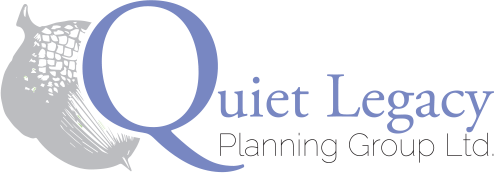One of the oldest truisms in financial planning is that wealth doesn’t always mean cashflow. This is especially true for many business owners. As a whole, business owners tend to sink most of their money back into helping the business grow.
This was very much the case for Lynn, who had the business smarts a decade ago to identify a business opportunity. At the time, she realized that her field, like many others was undergoing a massive transformation. Like many fields, rapid advancements in technology were turning her industry on its head. When she was offered a buyout package from her employer, she turned bad luck into a winning formula. The small company she founded from her severance package grew at a steady pace. Within a few years, it grew to be one of the top private firms in its field.
Along the way, Lynn’s cousins Thomas and Lilly were recruited to join in. Like many startups, Lynn didn’t have the funds to offer a lot of salary, so she granted Thomas and Lilly stock in the company as incentive to come on board.
In the last few years, Lynn received amazing news. A large public company had made an offer to purchase the firm and bring it under their banner. As the industry matured, most of the largest players were finding their growth capped – the only way to grow was to acquire clients through the purchase of the few remaining independent firms. The amount of money being offered was well beyond what Lynn, Thomas and Lilly thought the company was worth, so selling was a no-brainer. It would be an enormous cash windfall for each of them.
Lynn’s family knew that they had done well with their investment, but in her words “We have no friggin’ clue how to deal with that kind of money”. Despite their success, the family had paid themselves modest salaries over the years. Lynn’s spouse had in fact earned significantly more money in their salaried role as a senior manager for a large company. Thomas and Lilly had lived most of their lives paycheque-to-paycheque.
Making a Mindset Change.
Lynn, with her extensive business background has had the least challenging time adapting to her new circumstances. She’s always envisioned selling the business, and while she can now retire in her 50’s, she’s retiring early, but not abnormally so. That said, the amount of money she’s received for her shares is well beyond what she ever thought was possible. She’s made a point of sharing that wealth, and at the time of sale donated a significant amount to charity to help offset the very large tax bill that came with the sale.
Thomas and Lilly are finding it more challenging to adapt. They are both younger than Lynn. While they have a very healthy bank balance, they aren’t ready to stop working. They also can’t quite get over the feeling that their success “isn’t real”, to quote Lilly. She’s still finding herself clipping coupons to find the best prices. Thomas, who loves to travel, is still choosing the cheapest option, instead of travelling to the far-flung places on his bucket list. Like Lynn, they are both eyeing opportunities to gift money to causes important to them, as anonymously as possible.
One of the things I love most about their family that their new-found wealth hasn’t at all altered who the fundamentally are. Lilly and Thomas know that they need to continue to work – not because of financial reasons, but because for them, hard work is a core personal value.
Thomas and Lilly have been adjusting themselves to their new situation, and have been empowering themselves with education. They are both quick studies, and Lynn’s been excited to watch them go deeper and more meaningful questions about their money.
There’s a lesson here for all of us.
Not everyone is going to be as fortunate as Lilly, Lynn and Thomas. Despite this, there are many times in our lives where our financial situations may take a turn for the better. You might have a significant increase in your salary, or maybe inherit some funds, for example.
I think there are a few things that we should all learn from my Lynn and her cousins’ experience:
- Don’t make massive changes to your life, just because you’ve come into some money.
- Take the time to learn, ask questions, and be educated before deciding what to do with your money. I can’t emphasize this point enough – empower yourself with education.
- Talk to a variety of professionals, and get advice on how to maximize your impact – be it for tax planning, charitable purposes, or anything else.
- Don’t fundamentally change you are, but do use it as an opportunity for personal growth.
- Realize what is important to you – for Thomas and Lilly, they work now because they enjoy it, and want to work – not because they have to.
- Most importantly, remain a wonderful human being.
As a planner, I’ve often seen a sudden unexpected monetary windfall disappear quickly and easily. I’m pretty sure these three will enjoy their newfound freedom—and share it with the people and causes that are important— to them for the rest of their lives.
Ryan

